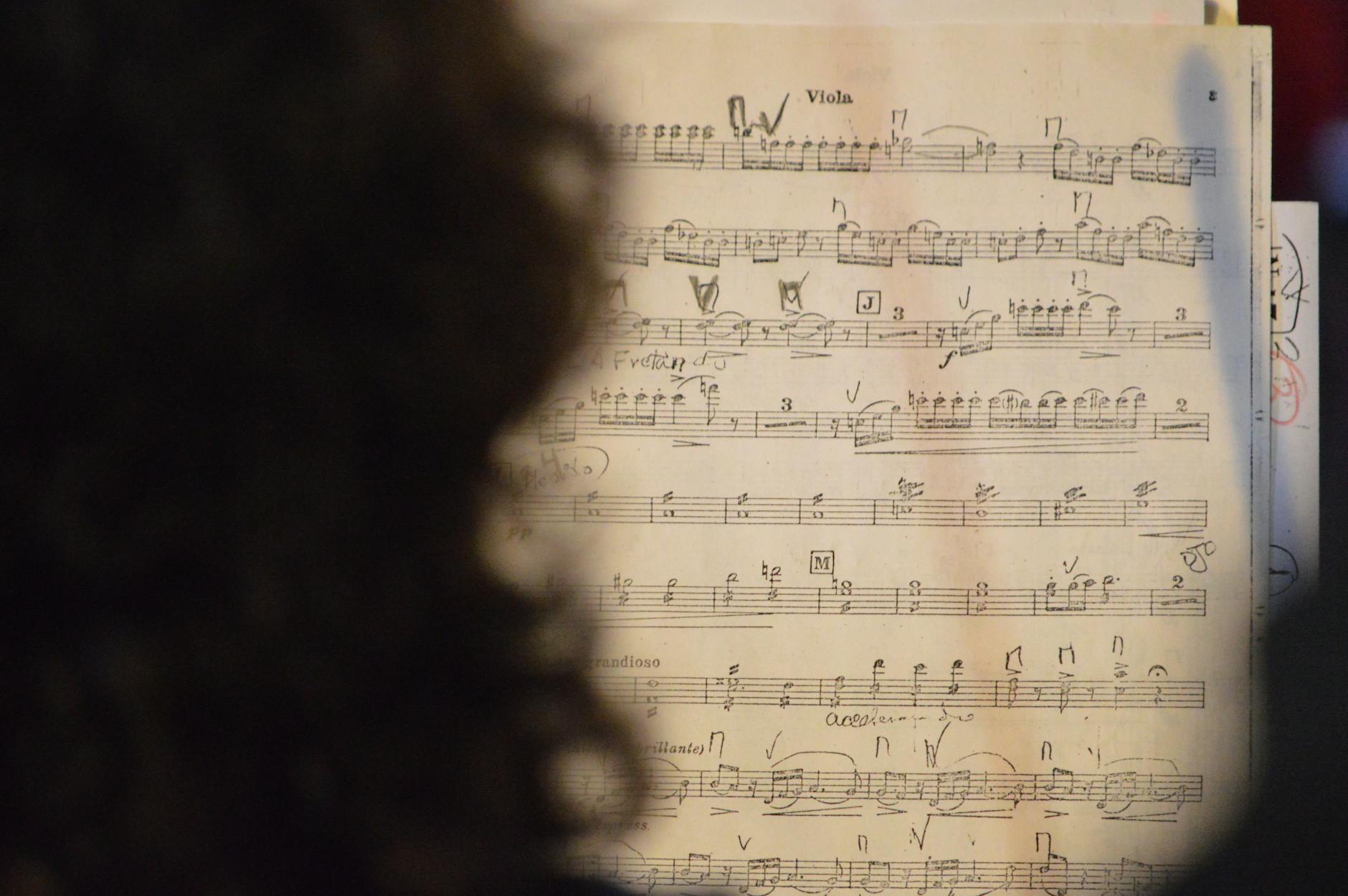Table of Contents
Best Classical Composers of All Time: Who Reigns Supreme?
Classical music has been a profound and influential art form for centuries, captivating audiences with its intricate melodies, harmonies, and emotional depth. Within this rich tradition, certain composers have emerged as titans, leaving an indelible mark on music history. This article explores the greatest classical composers of all time, examining their contributions, innovations, and the criteria that elevate them to the pinnacle of classical music. From Johann Sebastian Bach to Ludwig van Beethoven and Wolfgang Amadeus Mozart, we’ll discuss the legacies of these musical giants and their enduring impact on the world of music.

Who are the best classical composers of all time?
What makes a composer the greatest?
Determining who qualifies as the greatest composer in classical music is a subjective endeavor, influenced by personal taste, cultural context, and historical significance. A composer’s greatness often stems from their ability to innovate within the classical tradition, creating works that resonate with audiences across generations. The emotional depth, technical mastery, and originality of their compositions play a crucial role in this assessment. For instance, composers like Johann Sebastian Bach and Ludwig van Beethoven are celebrated not only for their prolific output but also for their profound influence on the evolution of musical forms, such as the fugue and symphony.
How do we define the best composer in classical music?
Defining the best composer in classical music involves a multifaceted approach. It encompasses the breadth of a composer’s oeuvre, the complexity of their works, and their ability to evoke emotion. Additionally, the impact a composer has on subsequent generations of musicians and composers is a significant factor. For example, Beethoven’s revolutionary approach to structure and harmony paved the way for the Romantic composers who followed him, including Brahms and Tchaikovsky. Thus, the best composer is often one whose music transcends time, continuing to inspire and challenge both performers and listeners alike.
What criteria are used to rank classical music composers?
When ranking classical music composers, several criteria are typically considered. These include the innovation and originality of their compositions, the emotional and intellectual depth of their music, and their influence on the development of various musical genres. Additionally, the technical proficiency displayed in their works, such as the complexity of their orchestral arrangements or the intricacies of their chamber music, is also evaluated. The historical context in which a composer worked, including their ability to respond to and shape the cultural landscape of their time, further informs their ranking among the greatest composers of all time.
What are the contributions of Johann Sebastian Bach?
How did Bach influence classical music?
Johann Sebastian Bach is often regarded as one of the greatest composers who ever lived, and his influence on classical music is immeasurable. His mastery of counterpoint and harmony set a standard for composers that followed. Bach’s works, particularly his fugues and concertos, exemplify the Baroque style, characterized by intricate melodies and complex structures. His ability to weave together multiple musical lines into a cohesive whole has inspired countless composers, from Mozart to modern-day musicians. Bach’s exploration of various forms, including the sonata and orchestral suites, laid the groundwork for the development of classical music as we know it today.
What are some of Bach’s most famous works?
Among Bach’s most celebrated compositions are the “Brandenburg Concertos,” a collection of six instrumental works that showcase his innovative orchestration and virtuosic demands on performers. The “Well-Tempered Clavier,” a two-volume collection of preludes and fugues, remains a cornerstone of piano repertoire, illustrating Bach’s genius in exploring the possibilities of harmony and key modulation. Additionally, his “Mass in B minor” and “St. Matthew Passion” are monumental works that exemplify his ability to convey deep spiritual and emotional narratives through music. These compositions not only highlight Bach’s technical prowess but also his profound understanding of human emotion, solidifying his status as a great composer.
Why is Bach considered a great composer?
Bach is considered a great composer due to his unparalleled ability to blend technical skill with emotional depth. His works are characterized by a meticulous attention to detail, intricate counterpoint, and a profound understanding of musical form. Bach’s music transcends the Baroque period, influencing a wide range of composers across various styles and eras. His exploration of harmony and structure has left an enduring legacy, making him a foundational figure in the classical tradition. Music lovers and scholars alike continue to study and perform his works, ensuring that Bach’s genius remains alive in the concert halls of today.
How did Ludwig van Beethoven change classical music?
What are Beethoven’s most significant compositions?
Ludwig van Beethoven is often hailed as one of the greatest classical composers of all time, renowned for his transformative impact on the genre. His most significant compositions include the nine symphonies, particularly the Fifth and Ninth, which broke new ground in terms of emotional expression and orchestral scale. The “Moonlight Sonata” and “Piano Concerto No. 5,” known as the “Emperor Concerto,” showcase his innovative approach to piano writing and his ability to convey profound emotion through music. Beethoven’s late string quartets and the “Missa Solemnis” further illustrate his mastery of form and his willingness to push the boundaries of classical music.
How did Beethoven’s style differ from his predecessors?
Beethoven’s style marked a significant departure from that of his predecessors, such as Haydn and Mozart. While he drew inspiration from the classical forms established by these composers, he infused his music with a sense of drama and personal expression that was unprecedented. Beethoven’s use of dynamics, innovative harmonic progressions, and expanded structures allowed him to convey a wide range of emotions, from triumph to despair. His ability to blend the classical style with the emerging Romantic sensibilities set the stage for future composers, making him a pivotal figure in the evolution of classical music.
What impact did Beethoven have on future composers?
Beethoven’s impact on future composers cannot be overstated. His bold experimentation with form and structure inspired the Romantic composers who followed, including Brahms, Chopin, and Wagner. The emotional depth and complexity of Beethoven’s music encouraged composers to explore their own voices and express their individual experiences through their works. His innovative approach to symphonic writing and the development of thematic material laid the groundwork for the orchestral compositions of the 19th and 20th centuries. Beethoven’s legacy continues to resonate, as his music remains a cornerstone of the classical repertoire, influencing generations of musicians and composers.
Why is Wolfgang Amadeus Mozart regarded as a top composer?
What are Mozart’s key contributions to classical music?
Wolfgang Amadeus Mozart is celebrated as one of the greatest composers who ever lived, known for his extraordinary contributions to classical music. His prolific output includes symphonies, operas, chamber music, and piano concertos, each showcasing his remarkable melodic gift and mastery of form. Mozart’s operas, such as “The Marriage of Figaro” and “Don Giovanni,” revolutionized the genre, blending drama and music in a way that captivated audiences. His ability to write for a variety of ensembles, from solo instruments to full orchestras, demonstrates his versatility and deep understanding of orchestration.
How did Mozart’s life influence his music?
Mozart’s life experiences profoundly influenced his music. Born into a musical family, he displayed prodigious talent from a young age, touring Europe and performing for royalty. However, his struggles with financial instability and personal relationships are reflected in the emotional depth of his compositions. The juxtaposition of joy and sorrow in his music resonates with listeners, making his works timeless. Mozart’s ability to convey complex emotions through simple yet elegant melodies has endeared him to music lovers for centuries, solidifying his status as a top composer in the classical tradition.
What makes Mozart’s compositions timeless?
What makes Mozart’s compositions timeless is their universal appeal and emotional resonance. His music transcends cultural and temporal boundaries, speaking to the human experience in a way that few composers can achieve. The clarity of his melodies, the balance of his harmonies, and the sophistication of his structures create a musical language that is both accessible and profound. Mozart’s ability to blend humor with pathos, as seen in works like “The Magic Flute,” ensures that his music remains relevant and cherished by audiences around the world. His legacy as a great composer endures, as his works continue to be performed and celebrated in concert halls and opera houses globally.
What is the legacy of Richard Wagner in classical music?
How did Wagner innovate the opera genre?
Richard Wagner is a towering figure in the world of classical music, particularly known for his innovations in the opera genre. Wagner revolutionized opera by integrating music, drama, and visual spectacle into a cohesive art form. His concept of the “Gesamtkunstwerk,” or total artwork, emphasized the unity of all artistic elements, including music, libretto, and staging. Wagner’s operas, such as “The Ring Cycle” and “Tristan und Isolde,” introduced complex characters and themes, exploring profound philosophical and psychological ideas. His use of leitmotifs—musical themes associated with specific characters or ideas—added a new layer of depth to operatic storytelling, influencing generations of composers and redefining the possibilities of the genre.
What are Wagner’s most notable works?
Wagner’s most notable works include his monumental operas, particularly “The Ring of the Nibelung,” a four-opera cycle that explores themes of power, love, and redemption. “Tristan und Isolde” is another landmark work, known for its innovative harmonic language and exploration of longing and desire. Wagner’s “The Flying Dutchman” and “Parsifal” further showcase his ability to blend myth and music, creating operas that resonate with audiences on multiple levels. These compositions not only highlight Wagner’s genius as a composer but also his role as a visionary who transformed the landscape of classical music.
Why is Wagner considered one of the greatest composers?
Wagner is considered one of the greatest composers due to his profound impact on the development of opera and classical music as a whole. His innovative approach to musical storytelling, combined with his exploration of complex themes, set a new standard for composers. Wagner’s ability to create immersive musical experiences, characterized by rich orchestration and emotional depth, has left an enduring legacy. His influence can be seen in the works of later composers, including Strauss, Mahler, and even modern film composers. Wagner’s contributions to the classical tradition continue to be celebrated, ensuring that his music remains a vital part of the cultural landscape.
Additional Reading
More blog posts can be found here. Consider following Breve Music Lessons on Facebook.





